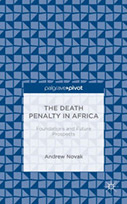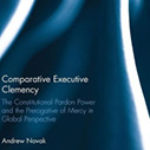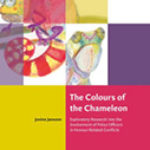The Death Penalty in Africa: Foundations and Future Prospects

Author: Andrew Novak
Publisher: New York: Palgrave Macmillan, 2014. 132p.
Reviewer: Kawu Bala | September 2015
Andrew Novak’s THE DEATH PENALTY IN AFRICA is a brief systematic study of the death penalty on the African continent. The death penalty is as old as time immemorial, and it “was the keystone of all penal systems and the exemplary punishment par excellence” (African Commission on Human and People’s Rights, 2011, p.15). Recently, debate regarding the suitability or otherwise of the death penalty as a form of punishment in countries around the globe has been raging. Consequently, some countries have abolished the death penalty as part of their criminal legal system, but still others retain it. This is in addition to a number of global organizations criticizing the application of this form of punishment. Africa is unique in this regard due to varied factors: a historical affinity, the colonial experience, economic, political and social chaos, and orchestrated underdevelopment, just to mention a few.
The ‘distinctive’ nature of Africa is in itself the very reason why discussion about issues regarding the continent needs to be undertaken with caution (p.1). Africa, of course, is not a no-go area for discourse, but when authors with different backgrounds advocate for a change in African philosophical norms and values, there is bound to be problem. This is not to say that there are no “native” authors advocating for the death penalty to be abolished. It is to be admitted that there are multi-dimensional “teething” troubles in Africa, but some are relics from the ugly relationship the continent had with European colonialists. Africa is unfortunately unable to cut off this kind of relationship under the current global power structure. Without a doubt, most of the problems the likes of which are linked to the death penalty stem from the way Africa’s institutions are being managed, specifically the legal and judicial sectors. Is it a question of the rule of law to refuse to deprive a person of the right to life? Can the death penalty be allowed if Africa can revive her institutions? What if the alternatives to the death penalty do not prove suitable and workable in Africa? For Andrew Novak, the answer is no — even if there were to be ‘improvements in institutional capacity’ in Africa (p.3). Thus, the author argues that Africa should abolish the death penalty—a sort of blanket condemnation if you will. Advisably, authors should write keeping in mind the diversity in Africa. Lest I be misunderstood, like Novak, I am not in support of ‘shoot to kill’ practices by the police or any form of extrajudicial killings (p.5). If any life is to be taken, this punishment must be done under the best of trials and be justifiable.
To understand the death penalty in Africa, Novak attempts to show its historical background. The punishment has been in Africa since the pre-colonial days. In a rather interesting statement, the author writes that the death penalty was better administered in African societies that had applied the Islamic mode of capital punishment called hudud. These were the communities,before the advent of the colonialists, that saw tremendous development in science, administration, statecraft, justice, and a host of other fields. The author curiously admits that the ‘spread of the faith’ led to ‘some uniformity on morality and justice issues’ coupled with ‘a written language that made record-keeping and the development of modern codes of law possible’ (p.11). Even here a distinction needs to be drawn between traditional and Islamic Africa. In traditional Africa, people guilty of murder were seen as pariahs because some societies did not allow them to be ‘buried in the same manner as others’ (p.15). This shows the level with which murder is detested in Africa. It is not about vengeance, but rather the need to make the society secure, lest things get out of hand.
Novak also delves into the period of colonization in Africa. Given the nature of colonialism, a great blow was delivered not only to the African indigenous legal and judicial systems, but to virtually every facet of affairs on the continent; it woefully devastated Africa. Historians, for example from among earlier European explorers who trooped into Africa, admitted that the continent was so secure that a woman could travel with a casket of gold and no one would harass her. But that was during the period before the African countries were colonized. Africa then changed, and as Novak also shows, the colonialists twisted the concept of punishment on the continent whereby criminal justice was used to control “dissidents” against colonialism (p.25). It was in this period, as the author describes, that the ‘most dramatic performance of criminal justice came in the form of the public execution,’ and law enforcement was detached from a communal concern, where ‘every person had a role to play,’ to one that was separate from the society. Here Novak and I agree, that “refusing” to allow the people to take part in policing matters is evident in Africa. As a result of the increase in crime rates in African countries, now many governments are calling for every person to play a role in community policing, at a time when people have become accustomed to waiting for protection from the states’ institutions– protection that often does not come. To summarize the author’s view, the application of the death penalty in Africa during the colonial era was for the worst; for it ‘reflected the inherent biases of the colonial project’ (p.28). On the record, the British used it for political motives as in Kenya when they nearly crushed the Mau Mau uprisings. This was the same, with the French, Belgian and Portuguese’s approaches in trying to dismantle popular resistance against colonialism (p.30).
As another point, Novak’s dwells on the “politicization of the death penalty in Africa.” This, to say the least, is noteworthy. We can agree that the period after independence was problematic. It saw the continuation of a colonial mentality (p.42). The Europeans bequeathed to Africa constitutional documents, but it was difficult to carry on due to rivalries among the ruling classes, one-party rule, coups and counter coups, and external interference (which the author does not mention), among a coterie of other problems. The application of the death penalty, that the author criticizes during this period, may not be unconnected with the role external parties played in abetting some of the African governments that pitilessly dealt with their political opponents. These include Sayyid Qutb in 1966 under Nasser’s Egypt, Patrick Lumumba in Mobutu’s Zaire, and other notable African nationalists who were brutally assassinated. The fact that the death penalty appeared in another form, for instance in the Rwandan genocide with the killing of Tutsi elites, to me is not as different as the author wants us to believe (p.45). The unmitigated support for a corrupt power shown in international politics, using a double standard, is capable of creating a “dog eat dog affair,” and all kinds of bad experiences open doors to using the death penalty to ‘settle personal vendettas’ (p.47).
Andrew Novak’s book as a whole is critical of the death penalty in Africa, but the author does this tactfully. This is quite true in many pages of his book. He has not given a clear answer why the death penalty should be abolished. If the death penalty is to be abolished are the proposed alternatives to justice suitable to deal with the crime rates that almost are about to consume all? The reality in Africa is that organized crime has already got ‘a foothold,’ and now there is terrorism, and those who are paid to kill are having a field day (p.51). If, as the author is saying that structural adjustment has badly damaged Africa’s governance capacity, thereby affecting legal, police and judicial institutions, the book under review should have identified the people responsible for the institutional mess in Africa. There is, however, hope in Africa looking at the era of democratization since governments are now ‘sensitive to public opinion,’ but this opportunity should not be used or exploited by others to achieve certain ulterior motives (p.59). It is unwise to leave mass atrocities that characterize Africa, for example, unpunished or else we create the tendency for a repeat in the future. This is why the position of the African Commission on Human and People’s Rights is commendable as it provides the ‘procedural benchmarks’ for the application of the death penalty. In my opinion, critics of the death penalty should be more concerned with the need for “fair trials” (p.68).
So the ultimate purpose of Andrew Novak’s THE DEATH PENALTY IN AFRICA is to carry further the debate about the death penalty in Africa. Novak seems to regard it as problematic and hence unwanted; one gets the sense that as he sees it in many pages of the book, in his words, ‘any country that imposes life as a term of years must confront the difficult question of how to handle a particular egregious offender’ (p.94). Well, Africa is a distinct continent; so it is better that Africa is left to use the best criminal justice system in the circumstance instead of suggestions that may not work well on the continent. If there is any shortcoming in the book, this is it. Despite this shortcoming, the book would be useful to students of law, practitioners, and the like.
REFERENCE
African Commission on Human and People’s Rights (2011). “Study on the Question of Death Penalty in Africa.” Submitted by the Working Group on the Death Penalty in Africa in accordance with Resolution ACHPR/Res.79 (XXXVIII) 05, Gambia. Accessed July 30, 2014
Kawu Bala, Bauchi State Judiciary, Nigeria


